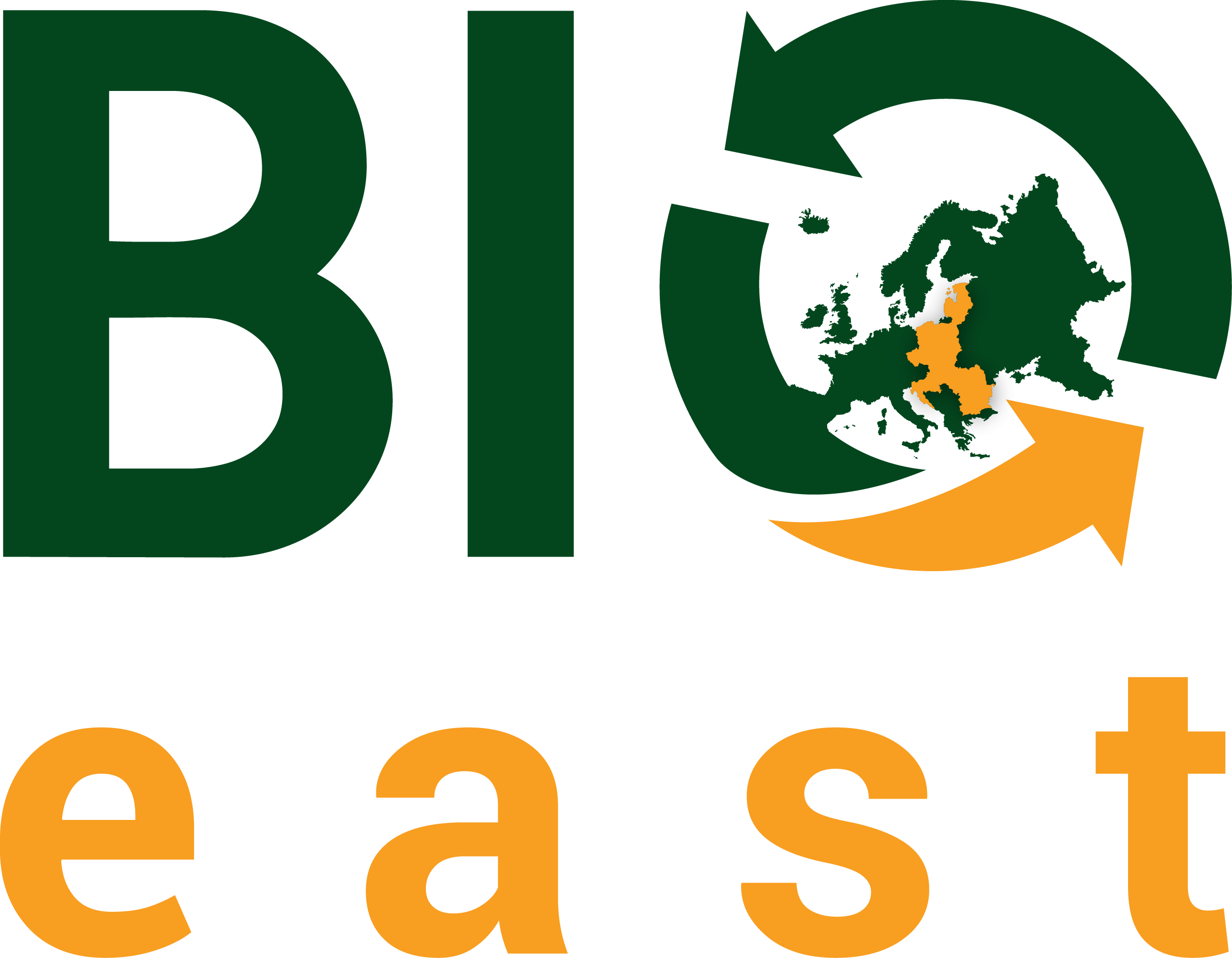Between April 2020 and May 2021 in line with the implementation of the BIOEAST Vision 2030 and with the funding of the Horizon 2020 coordination and support action (BIOEASTsUP) a macro regional foresight exercise was conducted to support the BIOEAST Member States in developing their sustainable bioeconomies. The aim was to build upon existing foresight reports and to deliver new insights about possible pathways for the deployment of bioeconomies in the macro-region. The main objective of the foresight exercise was to identify the specific macro-regional needs, challenges and potentials, and to provide advice to policy- and decision-makers as well as to contribute to the development of the BIOEAST Strategic Research and Innovation Agenda.
A Foresight Expert Group (FEG) of five independent experts was nominated to provide a better understanding of existing trends and to create scenarios of future bioeconomy developments. The BIOEAST Board invited the FEG to specifically focus on the following four areas:
a) Sustainable natural resources, particularly soils and water
b) Sharing economy in the context of sustainable food system
c) Renewable carbon use and decarbonisation pathways
d) Governance in the context of circular and sustainable pathways
The FEG worked under unprecedented circumstances, without physical meetings during the lockdowns caused by the COVID-19 pandemic. They prepared the Foresight Report in a truly participatory way by mobilizing more than 200 stakeholders in web-based national level workshops, international meetings between the FEG and BIOEAST ministries and specific experts to validate the scenarios and to define recommendations.
BIOEAST Foresight Report: https://bioeast.eu/wp-content/uploads/2021/10/BIOeast-Report-2021_FINAL_compressed-1.pdf
Foresight Conference Documents: https://bioeast.eu/events/bioeast-foresight-conference-climate-neutral-future-depends-on-sustainable-bioeconomies/
The five experts are the following:
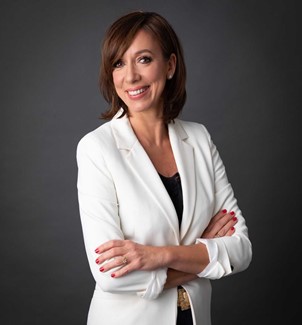
MSc Ladeja Godina Košir, Founder and Executive Director of Circular Change is an internationally renowned expert for circular economy, speaker, (co)author of several CE reports and articles, as well as the co-creator of international CE events. Ladeja was the finalist of The Circular Leadership Award 2018 (Davos WEF), recognised as the regional “engine of circular economy transition”. She is the co-author of the first Roadmap towards the Circular Economy in Slovenia and creator and team leader of the annual international Circular Change Conference. National circular economy roadmapping process based on stakeholder engagement is what Ladeja is consulting on to several countries and cities – Serbia, Montenegro, Chile …
Ladeja has several international roles:
- the Chair of the coordination group of the European Circular Economy Stakeholder Platform (ECESP) in Brussels,
- visiting professor at the Doshisha University in Kyoto,
- Co-leader of the Research Group Circular Economy Systems at the Bertalanfy Center for the Study of Systems Science (BCSSS) in Vienna.
Transdisciplinary systemic approach and holistic view is what Ladeja is implementing as an entrepreneur, communications professional, speaker, moderator, lecturer, mentor and passionate connector. She is empowering a new narrative and circular culture. She is bridging bioeconomy and the circular economy – one of the EU projects she is contributing to is Effective (Horizon 2020 & BBI JU), a multi-company collaboration to produce more sustainable bio-based fibers and plastics for large consumer products by using renewable feedstocks and innovative technologies Ladeja is working with governments, city authorities, companies, NGO’s, media, universities – empowering true collaboration to enable circular change.
Websites:
http://www.circularchange.com/
https://circulareconomy.europa.eu/platform/
https://www.bcsss.org/research/fields-and-groups/circular-economy-systems
Ladeja’s Linkedin: https://si.linkedin.com/in/ladeja
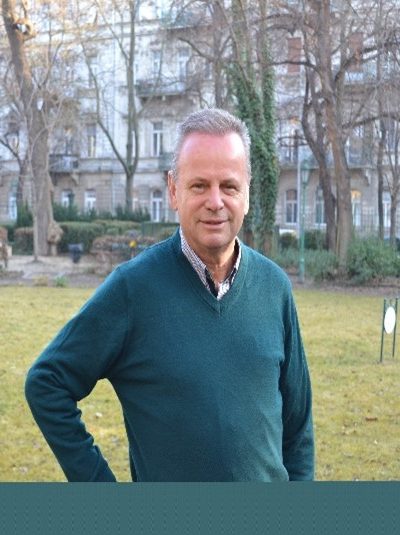
József Popp is Professor and dean at Szent István University, Faculty of Economics and Social Sciences, Hungary. He is Professor at WSB University, Dąbrowa Górnicza, Poland and North-West University, South Africa. He is also an active member and chairman of several academic and professional organisations. Professor József Popp obtained his PhD of economics at the Hungarian Academy of Sciences and his Dr. Sc. oec. degree at the Humbold University, Berlin, Germany. He is a corresponding member of the Hungarian Academy of Sciences. At the Hungarian Academy of Sciences, he is the chairman of the the Bolyai János research scholarship Committee, the chairman of the Committee on Agricultural Economics and the vice-chairman of the Scientific Committee of Circular Economy. He also serves as a member on a number of Editorial Boards of international journals worldwide. He has participated in several international research projects and is a member of several national councils related to science and education. His research interests includes global food and energy security analysis, competitiveness of the food economy, rural development, supply chain management, renewable energy, bioeconomy and circular economy. Among the honors he has received are: Doctorem Honoris Causa Pannon University, Hungary, 2010 and “Honoris Causa Professorship”, Delhi School of Professional Studies and Research, 2010. Award of the Hungarian Academy of Sciences in Recognition of Research Contributions, 2011. He has a long list of publications and has advised dozens of PhD students and postdoctors holding research and teaching positions in Hungary and abroad.
Links to publications:
https://scholar.google.hu/citations?hl=hu&user=eSFjizUAAAAJ
https://www.scopus.com/authid/detail.uri?authorId=56031677900
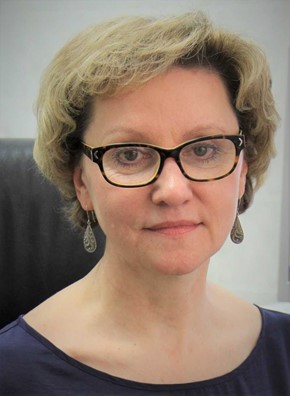
Assoc. prof. Malgorzata Zimniewska PhD is Director of The Institute of Natural Fibers & Medicinal Plantsin Poznan, Poland. She is a researcher with huge experience in terms of natural fibers in bioeconomy and circular economy. Background of Malgorzata is natural fibers textile engineering. Malgorzata serves as Polish representative in the Thematic Work Group: Bioenergy and New Value Added Materialsin BIOEAST. She works as Vice Chair of Quality Control in H2020 Future and Emerging Technologies for Research Executive Agency of European Commission. She is an expert of National Smart Specialization in Work Group of Circular Economy and Member of Main Council of The Research Institutes in Poland. Malgorzata served as Chair of DNFI – Discover Natural Fibers Initiatives Network, which is a platform gathering natural fibers stakeholders from the whole world. She worked as expert of Task Force on the Challenges from Competing Fibers of International Cotton Advisory Committee in USA and expert of European Technology Platform for the Future of Textiles and Clothing. Malgorzata Zimniewska has led many international, European and national research projects. She is a member of many national and international scientific committees and councils as well as a member of editorial board of several international journals. She actively takes part in strategic documents consultation for European Commission and Polish Ministry of Agriculture and Rural Development. She has authored and co-authored more than 160 articles published in research journals, conference proceedings and book chapters. She has been awarded Silver Cross of Merit by President of Poland, and many gold medals awarded by international fairs of innovation, e.g. in Brussels, Geneva, Nuremberg, Moscow, Seoul, Shanghai, Warsaw and others. ORCID profile of
Malgorzata Zimniewska: https://orcid.org/0000-0003-3917-9872
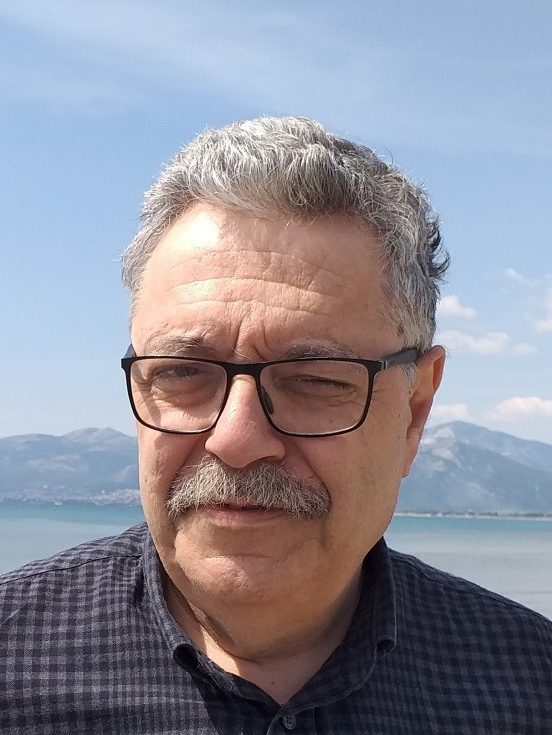
George Sakellaris works in the Academy of Sciences in Czech Republic. He also collaborates with the University of South Bohemia in its program on Bioeconomy. His educational background is Biology (Bachelor) and Biochemistry (Master’s and PhD). He has served in the past as Research Director at the National Greek Research Foundation in Athens (1986-2012), while he has spent periods as a visiting scientist at NIZO (Netherlands) Charles University (Czech Republic) and Qatar Foundation (Qatar). He was appointed as an expert advisor at the European Parliament (2006-2009) and the EFSA (2003-2006). Since 2019 he is member of the board of the newly established European Platform on Bioeconomy Education. He contributes in the activities of the Czech Hub of Bioeconomy and he is a member of the “Bioeconomy Platform for Czech Republic” established 2018. He is a current member in multiple international Committees, among them the International Council of Biotechnology (ICBA) – board member, the European Federation of Biotechnology (EFB), the Public Research and Regulation Initiative (PRRI), the EU-US task force on Biotechnology. Since the FP3, he has participated in more than 20 EU Research projects, either as a partner or a coordinator, while he is a regular evaluator of EC Research Proposals since 1998 to now. He is the author of more than 60 papers, and he has been an invited lecturer in more than 200 conferences worldwide.
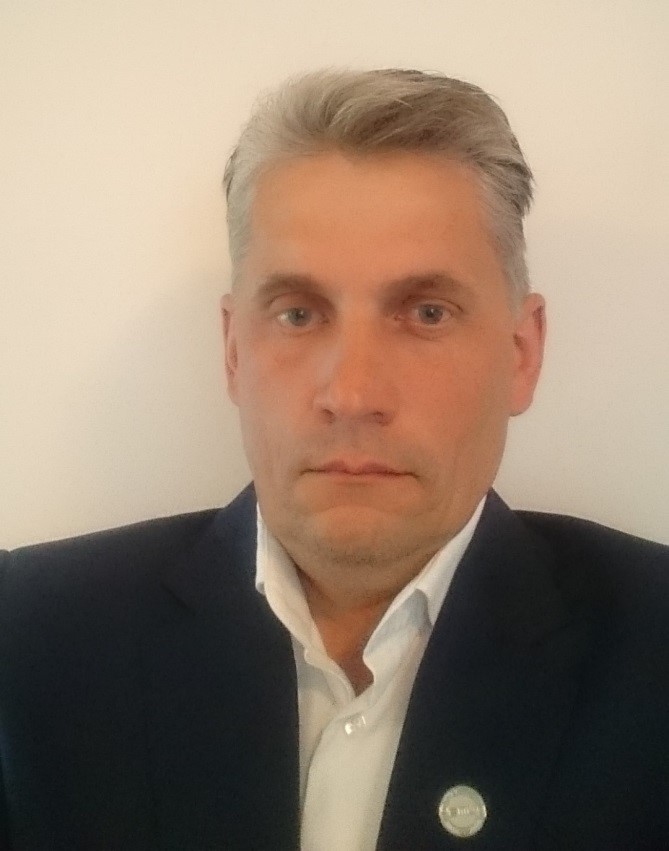
Mr. Rando Värnik is a Professor and a Chair Holder of Rural Economics in the Estonian University of Life Sciences. He is active in conducting and coordinating research on bioeconomy in Estonia, which makes him a valued opinion leader in the fields of food production economics, rural life, cooperative activities and bioeconomy. Rando Värnik’s research also includes food losses in primary production and possibilities how to reduce them.
Rando Värnik participates in several international research projects. He is currently leading several research cooperation projects with entrepreneurs and has been the programme manager of the long-term cooperation knowledge transfer programme since 2017 and the dairy performance indicators programme.
In addition to that, Rando Värnik participates in several advisory bodies in the Estonian Ministry of Rural Affairs and the Ministry of Environment. He participates in the work of several international expert panels and has organised and conducted several international conferences. Rando Värnik actively pursues collaboration with business and policy makers.
Rando Värnik is a member of the editorial boards of several international scientific journals. He has also been the editor-in-chief and compiler of the Estonian Rural Development Report. Rando Värnik has been a member of the steering committee and monitoring committee of the Estonian Rural Development Plan since 2007.
For a comprehensive overview of my experience, please refer to the curriculum vitae from ETIS https://www.etis.ee/CV/Rando_Varnik/est?lang=ENG&tabId=CV_ENG
